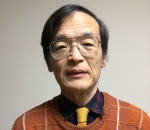以下大雑把な英語版です。
知ってる内容を英語ルートで理解。洋画で字幕を読んで英語を聞くように。
日本語の内容はこちらから
↓ ↓ ↓
https://worldlife.jp/archives/10677
ーーーーーーーーーーー
April is just around the corner, and it’s when the new school year starts in Japan. Nearly every spring, I think of a bewildering memory from high school days.
When I became a high school student, and joined a new class, teachers used a phrase which was unintelligible to me. That was “your internal world” or “your inner self”. I was at a loss what to make of those expressions. I remember saying to myself, “Wherever can be this internal world of mine? or my inner self? I can’t feel it, I can’t see it for the life of me. I can’t grasp it visually. Maybe I don’t have one. What shall I do?”
In fact, there was nothing for me to do, but just do nothing, and do what other students must have done, namely, pretend as if you can understand what “your internal world” or “your inner self”meant, and behave as naturally as possible. I did that, and as my pretense got more and more natural, I forgot that I couldn’t actually understand the meaning of these words…
Years passed.
One day I encountered a passage in a book and felt thunderstruck.
The author states that what modern people refer to as “internal world” or “inner self” never existed in olden days. They came into existence only after writing, and later, printing press were invented, and private reading became a common habit among middle class people. Only when a great many ordinary people began to read a book alone in a private room, as you do now, did an “internal world” or “your inner self” emerge as something solid, tangible, with depth and complex structure inside you.
I took a deep breath of relief. “Internal world” or “inner self” is a relative concept, subject to change, and it’s OK even if you can’t have its typical image in your head.
That book put an end to the silent agony I couldn’t pin down for so many years.
Every spring I relive this episode of mine, remembrance of some words past.
P.S.
◯Walter Ong / Orality and Literacy The Technologizing of the Word
p151,152
https://amzn.to/3FUdBDR
私立学校に英語教師として勤務中、40代半ばに差し掛かったころ、荒れたクラスを立て直す策として、生徒に公言して英検1級に挑戦することを思い立つ。同様の挑戦を繰り返し、退職までに英検一級(検定連合会長賞)、TOEIC満点、国連英検SA級、フランス語一級、スペイン語一級(文科大臣賞)、ドイツ語一級、放送大学大学院修士号などの成果を得る。
アメリカで生徒への対応法を学ぶ為に研修(地銀の助成金)。最新の心理学に触れた。4都県での全発表、勤務校での教員への研修を英語で行う。現在も特別選抜クラスの授業を全て英語で行っている。「どうやって単語を覚えればいいですか?」という良くある質問に答える為、印欧祖語からの派生に基づく「生徒には見せたくない語源英単語集」を執筆中。完成間近。常日頃洋書の読破で様々な思考にふれているが、そうして得た発想の一つを生かして書いた論文がコロナ対策論文として最近入賞。賞品の牛肉に舌鼓をうっている。元英検面接委員


